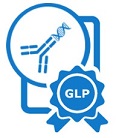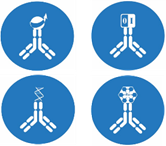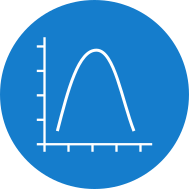Benefit from more than 20 years of experience in PK assay development
Pharmacokinetic (PK) describes all processes that an administered drug is subject to in the body as a function of time, including absorption, distribution, metabolism and excretion (ADME) of drugs.
PK assay study support by Chimera
Chimera biotec provides ultra sensitive bioanalytical support for modern biotherapeutics (e.g. therapeutic antibodies and proteins) throughout all phases of drug development. Our immunoassay validation is compliant with GLP/GCP regulations and follows international regulatory standards (EMA, FDA, ICH) to ensure that your bioanalytical method is qualified, fully validated, and documented. Chimera’s large molecule pharmacokinetic testing services include:
Selection of PK studies supported by Chimera:
Cooperation Between Systemic and Mucosal Antibodies Induced by Virosomal Vaccines Targeting HIV-1 Env: Protection of Indian Rhesus Macaques Against Low-Dose Intravaginal SHIV Challenges
Randomized phase I trials of the safety/tolerability of anti-LINGO-1 monoclonal antibody BIIB033
Phase I trial of intravenous aviscumine (rViscumin) in patients with solid tumors: a study of the European Organization for Research and Treatment of Cancer New Drug Development Group
Case studies
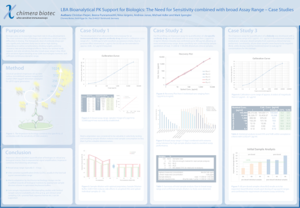
LBA Bioanalytical PK support for Biologics: The Need for Sensitivity combined with broad assay Range
Request the poster including three case studies, that show ultra sensitive therapeutic antibody quantification in biological matrix.
Sensitivity meets assay range
One of Chimera’s expertise is ultra sensitive PK study support. Combining broad quantitative range with excellent sensitivities, we offer unmatched biologics PK support using a single assay format. From high dosing in TOX through extreme low dosing in dose escalation in the later clinical stage, chimera biotec provides regulated PK sample testing using validated methods, based on the same assay format adapted to the intended range of application. This eliminates the need to run several assays to pair sensitivity and dynamic assay range.
Chimera’s capability to measure low concentrations of a given drug, we are able to provide a complete PK profile even for initial doses and thus shorten Phase I trials. Our high-quality data meet your regulatory requirements and can be decisive to evaluate ongoing dose escalation.
Rare matrices
Chimera’s long-running experience in diverse and rare matrices helps to understand the pharmacokinetic profile of your drug compound in virtually any matrix:
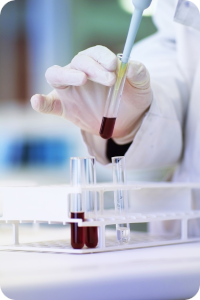
- Serum/ plasma
- Cerebrospinal fluid (CSF)
- Cell culture medium
- Bronchoalveolar lavage fluid (BALF)
- Tissue extracts and lysates
- Mouse tail vein
- Tears
- Saliva
- Synovial fluid
- And many more
For more than 20 years, chimera biotec is your service provider for unparalleled sensitivity in biological matrices and technically demanding PK assays. We have a long track record of supporting large molecule trials targeting a wide range of disease areas including oncology and neurology (CNS) in all phases of drug development. Our scientists are experienced in establishing PK assays (GLP / GCP / GCLP) in a variety of species including rodents, humans and non-human primates.


